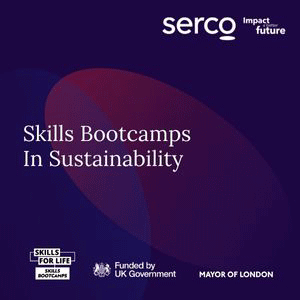Economic and Social Research Council
|
|
Anti-bullying training helps children stand up to cyberbullies
With a recent YouGov poll finding that two-thirds of teachers had seen pupils trolling and bullying each other on the internet, an urgent way of teaching children how to stay safe online is needed. Research presented at the Economic and Social Research Council’s (ESRC) 2014 Festival of Social Science shows that simply teaching children in school about what they can say to bullies can have great results, with children receiving this training being much more likely to stick up for others when they see cyberbullying take place.
Studies have shown that young people who witness another child being bullied are likely to stand by and watch it happen. However, according to researcher Dr Nicola Abbott from Canterbury Christ Church University, children do want to help - they just don't know the right way to go about it. Young people often fear that they may say the wrong thing, or perhaps make the bully turn on them. This is unfortunate, as observational research shows that when people do stand up for someone else, the bully tends to stop within just 10 seconds.
To improve the awareness and education around this issue, Dr Abbott led an anti-bullying programme for children of 12-13 years of age. Using role-play, this programme taught students how to stand up for victims if they saw someone being bullied and showed them what sort of words they could use. Afterwards, the young people used a chat room simulation where they observed another person being picked on by two other users. The children who had participated in the anti-bullying program were far more likely to intervene on the behalf of victim, and were also quicker to intervene than a control group.
“My research suggests that given the right advice and tools, children can be empowered to stand up to bullies,” says Dr. Abbott.
“Chat rooms are the ideal place to start because not seeing someone face-to-face could make young people feel less anxious about defending someone.”
The positive side of technology and online chatrooms is rarely dwelt on, yet this research suggests that we could be just as likely to be helpful online as we are to be negative. As part of an event for the ESRC Festival of Social Science, Dr Abbott and other researchers will be challenging the idea that technology is solely having a harmful effect on young people.
“There is a lot of fear about the use of technology in young people,” says Dr Abbott.
“People get a bit scared, I think, when they hear about cyberbullying or see infants using iPads sometimes better than they do themselves. However, this event will shed some light on what social science can tell us about both the positive and negative effects of young people's technology use. For example, how technology can support positive psychological development and combat negative behaviours, such as cyberbullying.”
For further information contact:
- Jeanette Earl, Canterbury Christ Church University Press Office
Email: jeanette.earl@canterbury.ac.uk
Telephone: 01227 782391
ESRC Press Office
- Aaron Boardley
Email: aaron.boardley@esrc.ac.uk
Telephone: 01793 413122 - Susie Watts
Email: susie.watts@esrc.ac.uk
Telephone: 01793 413119
Notes for editors
- Event: Understanding young people’s use of technology
Location: Beaney House of Art and Knowledge, 18 High Street, Canterbury, Kent, CT1 2RA
Date: 5 November 2014, 10.00-14.00 (open to the public 14.00 – 16.00) - Nicola Abbott is a Lecturer at the Canterbury Christ Church University. She has research interests in intergroup bullying, assertive bystander intervention, special educational needs and school-based anti-bullying interventions.
- The 12th annual Festival of Social Science takes place from 1-8 November 2014 with over 200 free events nationwide. Run by the Economic and Social Research Council, the Festival provides an opportunity for anyone to meet with some of the country’s leading social scientists and discover, discuss and debate the role that research plays in everyday life. With a whole range of creative and engaging events there’s something for everyone including businesses, charities, schools and government agencies. See the full programme of events and join the discussion on Twitter using #esrcfestival.
- The Economic and Social Research Council (ESRC) funds research into the big social and economic questions facing us today. We also develop and train the UK’s future social scientists. Our research informs public policies and helps make businesses, voluntary bodies and other organisations more effective. Most importantly, it makes a real difference to all our lives. The ESRC is an independent organisation, established by Royal Charter in 1965, and funded mainly by the Government. In 2015 the ESRC celebrates its 50th anniversary.


